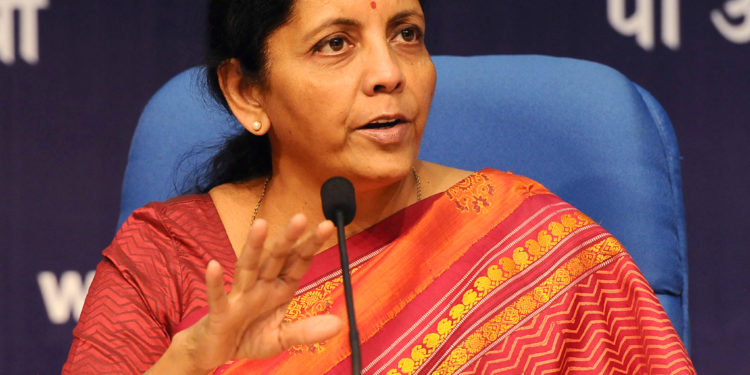February 2, 2021.
TED NewsDesk,New Delhi: Finance Minister Nirmala Sitharaman presented the Union Budget 2021 here on Monday which is receiving mixed reviews among critics and experts. Especially the budget on education is receiving several critiques, mainly due to the proposed cut of almost Rs 6,000 crores for the year 2021. A total of Rs 93,224 crores have been granted to the education sector this year, in comparison, 2020 saw the allocation of Rs 99,300 crores. The reduction has been introduced right after the government announced a new National Education Policy last year, proposing an increase in the education budget.
In the new education budget, the school education and literacy sector will receive Rs 58473.66 crores and the higher education sector will receive Rs 38,350.65 crores. School education will also face financial cuts as it will receive a decreased amount of Rs 31,050 crores for Samagra Shiksha Abhiyan, in contrast with Rs 38,750 crores in 2020. These cuts are especially detrimental in the current situation when schools have to supply safety gear and keep track of the health of the children. According to a report published in May 2020 by the World Bank, surplus funding is needed, “to implement new health and safety requirements, undertake the outreach activities needed to persuade students to return.”
The Higher Education Funding Agency (HEFA) will also receive a reduced amount of funding. In comparison to it’s last year’s funding of Rs 2,100 crores, it will receive a meagre sum of Rs one crore this year, significantly dwindling its functioning. HEFA was initiated by the late Finance Minister Arun Jaitley in the budget session of 2016 and came into force in 2017. Via HEFA, central educational institutions (CEIs) are able to get funds from the financial sector and invest in their infrastructure. Although in 2018, the government had restricted any financial support for infrastructure development for the CEIs from open market and given these rights to HEFA. This year, the government has taken a u-turn and has again started providing aid for infrastructure support to the CEIs.
Apart from these, the education budget focuses on the National Language Translation mission that will work for the translation of government policies and other relevant information in regional languages. These translations will be made available on the internet.
On the implementation of NEP, funds have been provided for the setting up of an Academic Bank of Credit that will provide students with educational loans on the basis of their coursework. To this end, Rs 50 crores have already been provided.
National Research Fund, which was originally announced two years ago in the 2018 budget session, was mentioned again by Sitharaman, who said that the NRF will receive a funding of Rs 50,000 crore over a period of five years. Its objective is to support research and areas of national significance. Sitharaman talked about a new, technologically developed India that will function on ‘minimum government and maximum governance”.
An overarching parent structure was also being suggested by Sitharaman, something that would act as a bridge between various higher educational institutions, helping them function smoothly. According to Amit Khare, the Higher Education Secretary, “The nine hubs of HEIs announced by FM in the budget will definitely bring multidisciplinarity and more synergy amongst institutions of MoE and research institutions of DST, DBT and CSIR.”
Additionally, to empower skilled workers and support their skill development, the Apprenticeship Act will receive amendments to extend support to students as well. The Act will be amended to include apprenticeship after the completion of one’s studies. Rs 3,000 crores have been allotted to this programme.
The government will also work towards teachers’ training, employing senior or retired teachers to mentor new or junior teachers via online and offline training sessions. From the 2022-2023 academic session, the changes in school education as per the NEP will come into force, according to Sitharaman. Continuing the vision mentioned in NEP 2020, there will be more focus on analytical and critical thinking, and creating and implementing an understanding of practical education among school children.
Although the Union Education Minister has praised the education budget, there still seem to be significant issues that need to be addressed. The most important issue is the utter ignorance of students’ and parents’ economic and mental health issues that were incurred during the COVID-19 pandemic. The long last impact of the pandemic on the education sector will prove to be increasingly detrimental for current students. If these issues are not addressed on time, there will be irreversible damage to the quality of education, especially during the pandemic period and after.
Sources: The Indian Express








